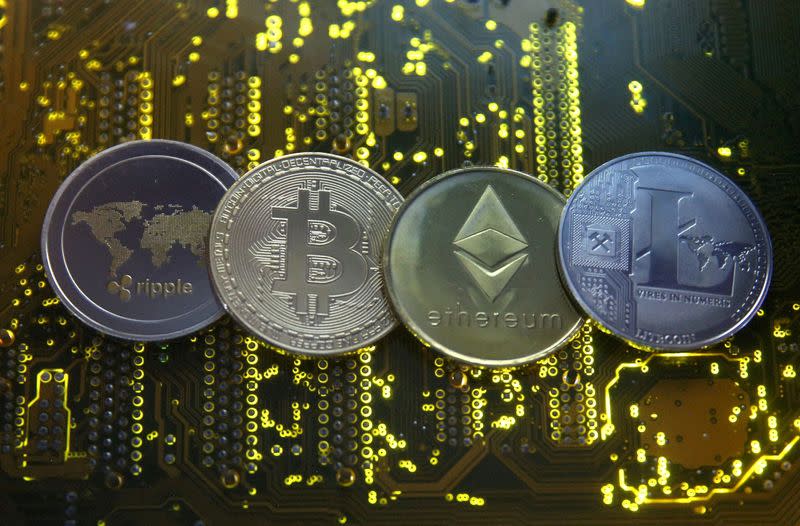Factbox - Singapore's rise, and falter, as Asia cryptocurrency hub

By Alun John and Chen Lin
HONG KONG/SINGAPORE (Reuters) - Singapore's burgeoning cryptocurrency sector has been shaken by the recent collapse of Three Arrows Capital, a cryptocurrency hedge fund, and signs of tighter scrutiny by regulators at the Monetary Authority of Singapore.
Following are key facts about the rise of Singapore as an Asian cryptocurrency hub, and the fallout from the Three Arrows collapse.
HOW IMPORTANT IS SINGAPORE TO ASIA'S CRYPTO SECTOR?
Investment in Singapore's crypto and blockchain companies surged to $1.48 billion in 2021, according to KPMG, ten times the previous year and nearly half the Asia Pacific total for 2021.
PwC says 6% of the world's crypto funds are based in Singapore, ranking it a joint third globally - along with Switzerland and Hong Kong - behind the U.S. and UK.
Singapore, one of Asia's main investment banking and asset management centres alongside Hong Kong, is keen to establish a leading role in financial technology, including blockchain and crypto.
WHY HAS SINGAPORE ATTRACTED CRYPTO BUSINESS?
The scale and range of Singapore's crypto companies and service providers attracted digital asset companies fleeing regulatory crackdowns elsewhere.
These include Huobi, a crypto exchange initially focused on China that now has a major presence in Singapore.
U.S. firms like crypto exchange Gemini have set up regional Asia headquarters in Singapore.
The citystate was also a forerunner in developing a licencing regime for crypto companies, which attracted many companies hoping the endorsement of a leading regulator would help them to win business.
Other industry leaders such as crypto exchange Coinbase have applied for licences in Singapore.
DBS, Singapore's largest bank, has launched its own crypto exchange.
WHY DID 3AC COLLAPSE?
Digital currencies have been on the backfoot for months, with Bitcoin losing roughly half its value since the start of May.
The sell-off was triggered by the collapse of stablecoin TerraUSD and its paired token Luna, resulting in large losses for holders such as 3AC. The company lost about $200 million of its investment in Luna, an executive told the Wall Street Journal last month, adding that the company was still trying to quantify its losses.
According to U.S. court filings, several of 3AC's lenders have issued it notices of default.
WHAT IS SINGAPORE'S REGULATORY STANCE?
The Monetary Authority of Singapore's statements have indicated a welcoming approach, encouraging crypto-related services https://www.mas.gov.sg/news/speeches/2022/mas-approach-to-the-crypto-ecosystem.
At the same time, some companies say the authorities' soothing rhetoric belies an occasionally harsh regulatory stance.
Only a handful of approvals have been granted so far among well over 100 applicants for new crypto payments licences.
Chia Hock Lai, co-chairman, Blockchain Association Singapore, said there were currently well over 200 crypto businesses in Singapore, but several had shut down or moved out after the licencing regime came in.
The most high-profile of these is Binance, the world's largest crypto exchange, which left Singapore last year as it came under close scrutiny around the world.
Like regulators elsewhere, MAS has also indicated that it would take a tough stance on money laundering, consumer protection, and other risks that may be associated with the digital currency sector.
Tharman Shanmugaratnam, Senior Minister and chairman of the MAS, told parliament last week that the regulator was considering additional consumer safeguards for cryptocurrency trading, although he did not mention 3AC.
(Reporting by Alun John and Chen Lin; Editing by Edmund Klamann)

